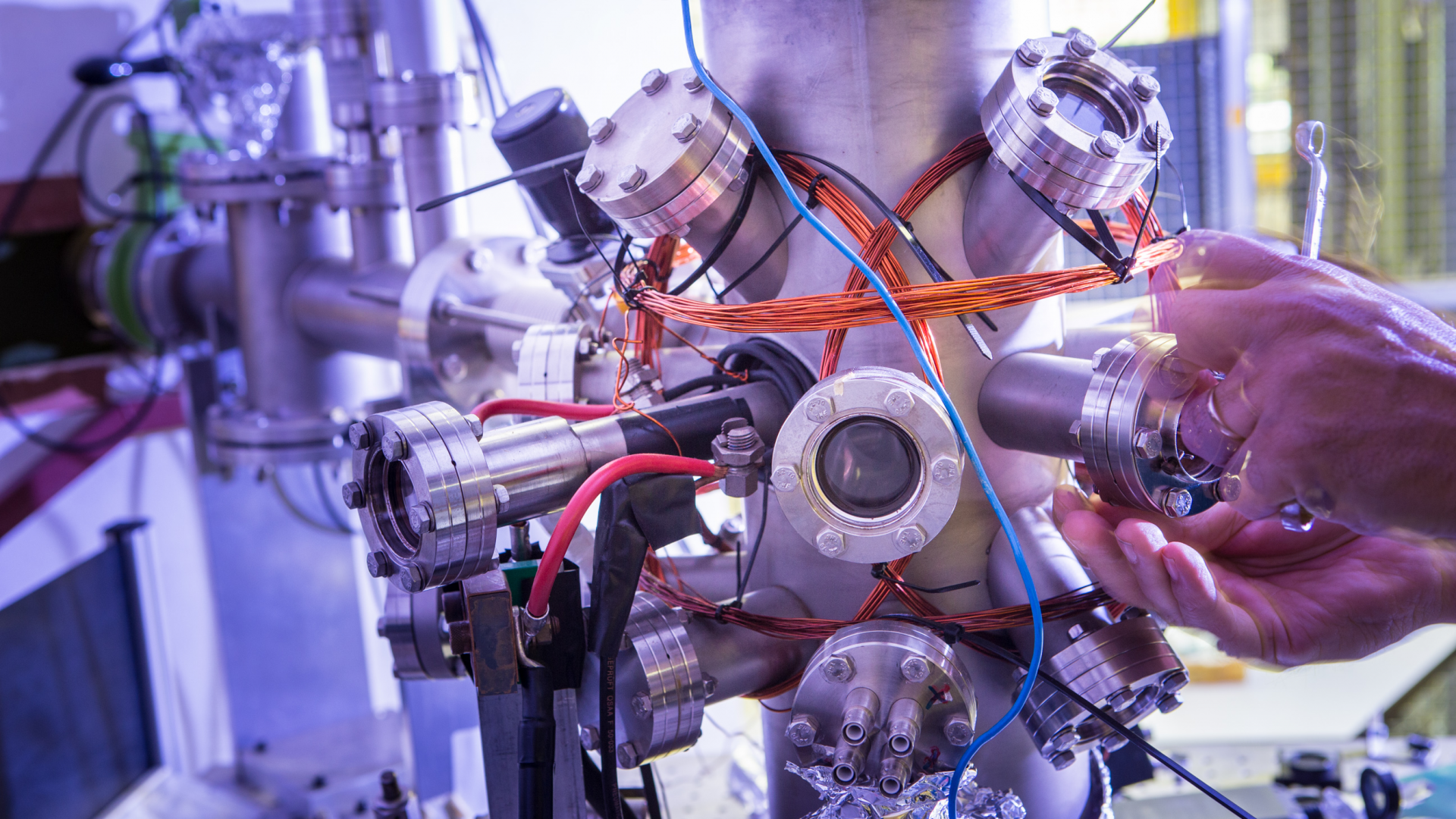ERC Starting Grants for ARCNL group leaders Roland Bliem and Bart Weber
ARCNL group leaders Roland Bliem and Bart Weber each receive an ERC Starting Grant from the European Research Council (ERC). The projects granted are:
– ‘SURPLAS: ‘Resolving Surface Reactions in Plasma Catalysis: Towards Rational Catalyst Design’ (Roland Bliem)
– ‘CHIPFRICTION: ‘Getting rid of friction in computer chip production’(Bart Weber).
Each group leader receives 1,5 million euro to carry out the research plans. In addition to their work at ARCNL, Bliem and Weber hold a position of assistant professor at the Institute of Physics at the University of Amsterdam (UvA).

Research projects
SURPLAS: Resolving Surface Reactions in Plasma Catalysis: Towards Rational Catalyst Design
Roland Bliem
Renewable energy is key to tackling climate change. Having a reliable way to convert this energy into fuel is crucial. Plasma-assisted catalytic conversion (PLAC) is a highly promising technique to produce fuels from greenhouse gases. In PLAC, reactants are activated in a plasma discharge before interacting with the catalyst. The reaction, however, takes place at the surface of a catalytically active material. The composition and oxidation state of the surface during the reaction is crucial for the reaction pathway and the product yield. Characterizing the surface in the highly reactive environment of PLAC is challenging, but essential to understand plasma-assisted reactions and increase the impact of PLAC.
Roland Bliem is an expert in surface reactions and materials design. In SURPLAS he will unlock the full potential of PLAC by determining the surface reaction mechanisms of catalysts in plasma. Based on the atomic-scale understanding of these reactions, he will then demonstrate how effective plasma catalysts can be designed, enabling SURPLAS to lead the way to efficient, PLAC-based energy conversion.”

CHIPFRICTION: Getting rid of friction in computer chip production
Bart Weber
Friction, the force that resists relative motion between solids in contact, has already been investigated by Leonardo da Vinci in the 15th century. Today, friction accounts for a major part of global energy use; it is responsible for 25% of the world’s energy consumption. An industry for which friction is a major problem is the computer chip industry; friction and wear limit the positioning accuracy and throughput in chip production. As future positioning requirements approach the atomic scale, contact, friction and wear need to be understood.
In recent years, Bart Weber has developed a series of break-through methods to visualize and measure friction. In CHIPFRICTION, together with industry partner ASML, he will combine these methods and use them to design new friction manipulation strategies that can be used to significantly improve computer chip production.
Read more about the ERC Starting Grants.








